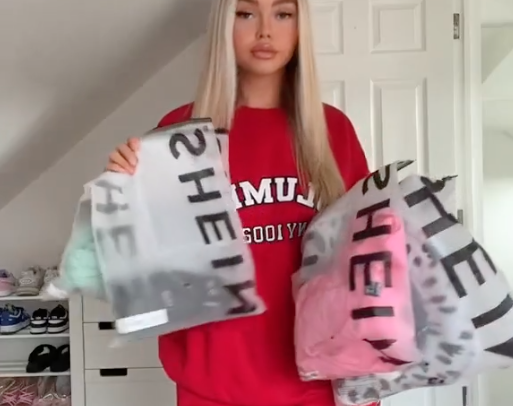The Chinese fast fashion group has launched a new platform available for now only for the American market. The opportunity? To buy and re-sell their old garments and footwear directly through the app. To give the announcement is Business of Fashion in an article in which he explains what, for now, is known about this operation of which we will hear a lot.
This move is both a way to build a benchmark in a fast-growing consumer market, and part of a series of efforts designed to combat criticism that their fast, low-cost business model is the antithesis of efforts to make fashion more sustainable. According to Bof, for big brands like Shein, "resale is unlikely to become a big revenue generator anytime soon. But it offers a compelling reason for customers to come back. Potentially opening up new points of contact with consumers and creating engagement." Loyalty therefore seems to be the watchword. But also to realign with the new sustainability diktats, considering that "Shein has been very attacked for not being a sustainable brand. He's been under a microscope for a while..."
One thing is certain: the great success that apps to sell used clothes are having in recent years makes absolute sense. The recession and the climate crisis are the first plausible reasons that come to mind. But, making room in the closet and selling what is not good for us has more than one advantage. In addition to giving us space and order, the first is undoubtedly represented by a more or less small source of extra income. The second is that it is sustainable shopping. Because it puts a large amount of clothing back into circulation without the costs and environmental damage of production and sale.
The truth is that Shein's "fasr fashion" was beginning to dislike. The online store of cheap clothes, very popular among young people, is increasingly criticized for its enormous environmental impact.
Ithas begun to attract a lot of criticism for an approach that according to various points of view encourages unbridled shopping, with a presumably enormous environmental impact.
Shein was founded in 2008 by Chinese entrepreneur Chris Xu in Nanjing. At first she sold wedding dresses bought in wholesale markets, then she also began to sell normal clothes, taking advantage of the fact that at the time there were not many online clothing stores.
Things started to go particularly well in 2015, when the online store began producing its own clothes, moving production to Canton, the center of Chinese textile manufacturing. It was then that Shein – until recently SheInside – began to focus both on digital technologies and on its own image to compete with the world's biggest fast fashion brands and take share of the European and American markets.
Unlike other fast fashion clothing stores, such as Zara and H&M, Shein sells its products directly to the public, without intermediaries, in order to reduce costs. It is based on a very fast production flow and does not have its own identity or aesthetics, but uses algorithms and data analysis to intercept the fashions of the various countries and re-propose them as quickly as possible in its new collections, often explicitly copying the creations of more or less famous designers, replicating them with a much lower quality.
With this system, Shein manages to produce new collections in a matter of days, while his main rivals would take an average of three weeks; In addition, it manages to put thousands of new garments online every day, such as T-shirts for 6 euros and summer dresses for 11 euros, encouraging the purchase also through discounts and promotions.
The coronavirus pandemic has contributed enormously to Shein's growth, both because other fast fashion brands had always focused heavily on physical stores, and thanks to advertising campaigns on Facebook, Instagram and TikTok. Much of the brand's success comes from the following it has built on social media: simply by asking its users to publish photos with its clothes, and then publish them on the official e-commerce channel, or through collaboration agreements with various influencers.
Another way Shein has established itself among younger generations is the so-called "haul videos", i.e. those in which people open the packages of products they order at home, increasing the visibility of the various brands. To give you an idea, videos categorized with the tag "Shein Haul" on TikTok have been viewed more than 5.7 billion times. With over 25 billion views of its hashtag, Shein is the most cited brand ever on TikTok, the social network frequented mainly by people of "generation Z" (ie those born after 1996).
While thousands of young people continue to find Shein attractive and competitive, many others, more attentive to environmental sustainability, contest her approach, criticizing the company also for the alleged exploitation of child labor and workers in general, which in the fast fashion industry is a very current problem.

